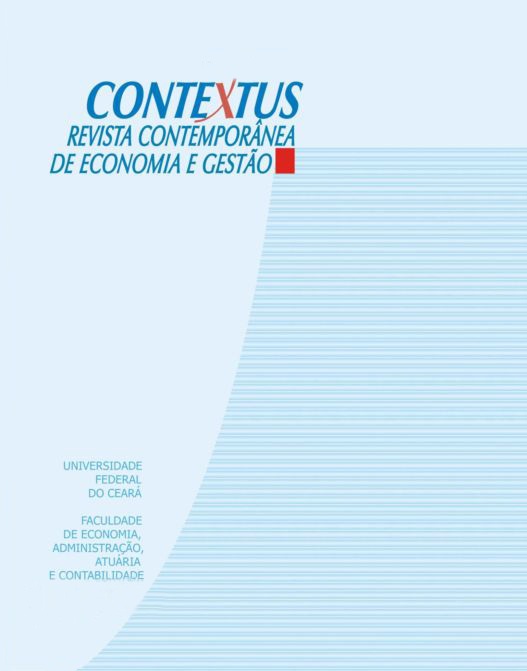APLICAÇÃO DO K-MEANS CLUSTER PARA CLASSIFICAR ESTILOS GERENCIAIS
DOI:
https://doi.org/10.19094/contextus.v6i2.32097Keywords:
Organizações. Estilo de Gestão. K-Means Cluster.Abstract
O objetivo desta pesquisa foi de realizar uma análise estatísticaa fim de classificar os estilos de gestão das organizaçõesempresariais utilizando as técnicas de agrupamento através dok-means cluster. Limitou-se a abordar os estilos propostos porLikert (1975;1979): autoritário, benevolente, consultivo eparticipativo. Efetuou-se uma survey através de um questionário,com questões fechadas respondido por 111 controllers deempresas da revista Valor 1.000 entre os anos de 2000 a 2004.Para classificar os estilos aplicou-se o k-means cluster. Constatou-se que 45,95% das empresas apresentaram um estilo degestão participativo, com aplicações eventuais de punições pelanão consecução de metas; 29,73%, um estilo de gestãoconsultivo, também com eventuais punições; 7,21% apresentaramum estilo de gestão consultivo, com eventuais puniçõese um planejamento estratégico informal; 9,01%, um estiloconsultivo, porém, sem a aplicação de punições ou de critériosde incentivos aos gestores; e, por fim, 8,11%, um estilobenevolente.Downloads
Downloads
Published
How to Cite
Issue
Section
License
The authors, while doing the submission, accept the notice below:
We authors hold the copyright related to our paper and transfer Contextus journal the right for the first publication with a Creative Commons’ international license of the modality Attribution – Non-commercial 4.0, which in turn allows the paper to be shared providing that both the authorship and the journal’s right for initial release are acknowledged.
Furthermore, we are aware of our permission to take part in additional contracts independently for non-exclusive distribution of the version of our work published in this journal (e.g. publishing it in an institutional repository or as a book chapter), while acknowledging both the authorship and the journal’s initial publication.
We also certify that the paper is original and up to this date has not been released in any other journal, Brazilian or of another nationality, either in Portuguese or another language, as well as it has not been sent for simultaneous publication in other journals.
Last, we not only know that plagiarism is not tolerated by Contextus but also certify the paper presents the sources of passages from cited works, including those authored by ourselves.


